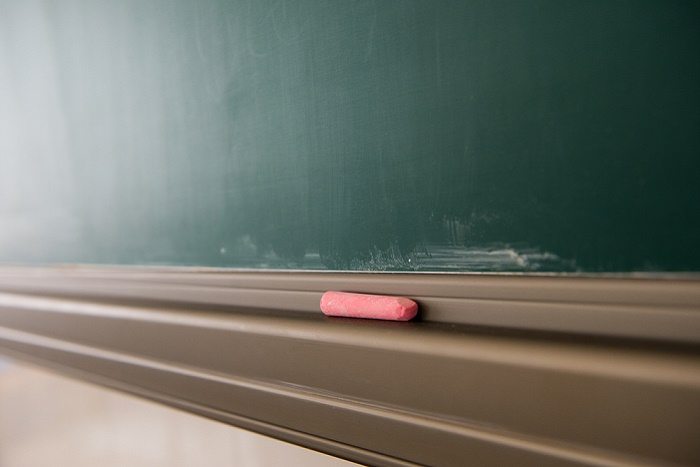New Orleans Students Could Soon Have Accurate Sex Ed Information
Louisiana teens have some of the highest rates of pregnancy, birth, and STDs but schools there can only teach abstinence. Some lawmakers would like to change that, at least for Orleans Parish.

Lawmakers in Louisiana are one step closer to instituting comprehensive sexuality education in Orleans Parish despite opposition from far-right groups and the Catholic Church.
The state’s House Education Committee in late April approved two measures—one would require schools in Orleans Parish to teach students how to prevent sexually transmitted diseases (STDs) and pregnancy and the other would allow schools there to survey students about their sexual behavior.
If passed, these laws would mean New Orleans-area schools would be under a different set of rules than those in the rest of the state. Lawmakers in favor of the bill say this is necessary because of the high rates of STDs and teen pregnancy in the area. The bills have some powerful detractors, including the arch-conservative Louisiana Family Council and the Louisiana Conference of Catholic Bishops.
Current Louisiana law doesn’t require schools to teach sex education, but allows them to do so after sixth grade. Schools that teach such courses may not include “any sexually explicit materials depicting male or female homosexual activity.”
Schools may not “in any way counsel or advocate abortion,” nor can they distribute any method of contraception.
If schools provide sex education, teachers must emphasize that “abstinence from sexual activity outside of marriage is the expected standard for all school-age children; abstinence from sexual activity is a way to avoid unwanted pregnancy, STDs (including acquired immune deficiency syndrome), and other associated health problems; and each student has the power to control personal behavior and to encourage students to base action on reasoning, self-esteem, and respect for others.”
There is already a separate set of rules for Orleans Parish. While schools across Louisiana are prohibited from providing sex education in kindergarten through sixth grade, schools in Orleans Parish are allowed to start this education in third grade. Schools statewide must provide sex education to a student if that student is already pregnant or parenting.
Louisiana schools are forbidden from testing, quizzing, or surveying students about their “personal or family beliefs or practices in sex, morality, or religion.”
Louisiana has some of the highest rates of teen birth and STDs in the country. Louisiana’s 2012 teen birth rate ranked seventh in the United States with a rate of 43.1 births per 1,000 young women ages 15-to-19, compared to the national rate of 29.4 per 1,000.
The state in 2012 ranked fifth in the number of chlamydia cases among teens, third in the number of gonorrhea cases among teens, and second in the number of cases of primary and secondary syphilis. The 2011 rate of diagnoses of HIV infection among adolescents in Louisiana was 22.1 per 100,000, much higher than the national rate of 7.6 per 100,000.
Lawmakers last year tried to change the rules for the entire state, arguing that the high rate of STDs and teen pregnancy shows that students have bad information. The bill—which was also opposed by the Louisiana Family Council and the Louisiana Conference of Catholic Bishops—would have required schools across the state to begin teaching comprehensive sexuality education in fourth grade. It failed to pass out of the House Education Committee.
The current bills, HB 359 and HB 326, were introduced by Rep. Wesley Bishop (D-New Orleans). Bishop told colleagues that the bills were necessary: “The City of New Orleans has one of the highest STD rates. … The number one cause of young women dropping out of high school is teenage pregnancy.”
HB 359 would require comprehensive sex education in middle school and high school and would allow for schools to start it third through sixth grade. HB 326 would allow surveys to help educators understand the risks students are taking. Parents would be able to choose not to have their children take the courses or surveys.
“I’m a practicing Catholic, but it’s not working. … Abstinence is not working,” New Orleans Councilmember LaToya Cantrell testified on behalf of the bill.
Other Catholics don’t agree. Robert Tasman, executive director for the Louisiana Conference of Catholic Bishops, told legislators that the church believes in sex education but does not think that students should be taught about contraception or ways to prevent disease, other than abstaining from sex.
“The Catholic Church will always be trying to pursue the highest moral value,” Tasman said.
The Louisiana Family Forum has a variety of concerns about the bills. Executive Director Gene Mills explained that his group is worried that this type of sex education might promote “different types of sexual orientation” or imply that same-sex relationships should be the norm.
The education committee, despite vocal opposition, passed the sex education bill 8 to 6 and the bill permitting surveying 9 to 1. The bills now head to the full house for consideration. Orleans Parish would have to provide comprehensive sexuality education beginning in the 2017-2018 school year.
Republicans hold a 59-44 majority in the Louisiana house.
